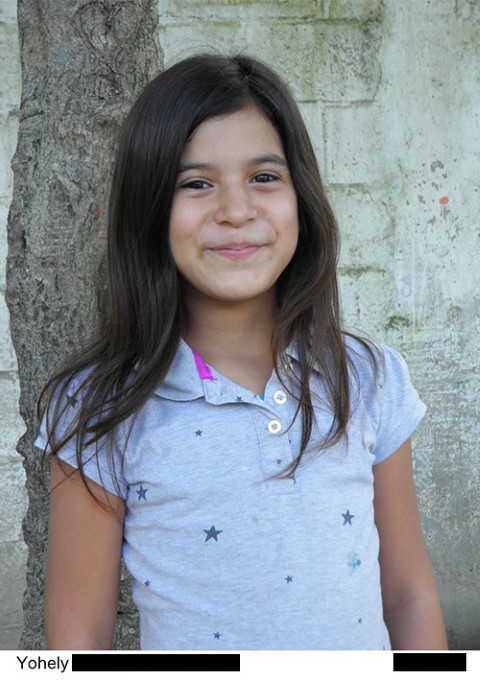I’ll be honest; I thought the request was ridiculous. After all, you know the saying: “Pics or it didn’t happen!” In a time when we document our dinner choices, check in at our favorite coffee shop, and even crowdsource our parenting decisions (or children’s names … by the way, don’t do that — that’s how you end up with a kid named “Megatron”), it’s second nature to share events for our friends and family to see. I mean, really, if you don’t share it on Facebook … or Instagram … or wherever, does it really count?
Unlike my sister-in-law, most of us aren’t so worried about privacy that we’ll stop sharing our photos. So, we need to be smart about it when we do share. Luckily, with just a little planning, you can protect the safety and reputations of all the important children in your life, whether they are a family member, a friend or a sponsored child!
It all comes down to two things: protect the child’s location and protect the child’s name. You can read about our Child Safeguarding Policy here.

It’s sensible to protect a child’s location when you are posting a photo. Here are a few ways to keep location information out of your photos:
My husband and I took a ton of photos before our eldest daughter’s first day of school. The shots were cute — she’s standing next to the preschool sign and holding her little pink backpack. Darling, right? But also dangerous. If we’d shared those photos on social media (and with all the grandparents), literally hundreds of people would know exactly where she went to school. Since we couldn’t guarantee who those people were, nor could we control the spread of the image after we posted it, we decided not to share the photos.
How does this apply to your sponsored child? Most of the official photos you get from CI include the child’s name and ID number. (We need this information when processing photos.) If you want to post one of these photos, make sure to mark out both the last name(s) and the number. You can do it with a marker or, if you don’t want to damage the photo, edit the digital image in Photoshop or a free application like PicMonkey.
OK, this one is a little technical. Because of the way smartphones take and store pictures, there is information in the file that tells a tech-savvy person exactly where that photo was taken. Seriously … like, within feet, thanks to the GPS services most of us have on our phones.
Fortunately, it’s an easy problem to fix. You can turn off that feature. Many phones will let you deactivate location services entirely, but that may impact your ability to do any location-based browsing or use your map functions. It’s probably best to turn off location services for your phone’s camera.
First, some good news! At this point Facebook doesn’t actually share the EXIF information (that’s the name of that sneaky location data in your photos). So, you don’t need to go delete all the photos from your wall! However, other sites like Flickr and Picasa often ask you to tag a location for your photos when you upload them. It’s probably not a big deal if you select a country name like the Philippines, but don’t give specific information about the neighborhood or area.
It’s much harder to identify a child when you have little information. That’s why using a nickname or initials can be an important step to protect your child’s safety. At the very least, don’t use the child’s full name.
How does this apply to your sponsored child? Most of the official photos you get from CI include the child’s name and ID number. (We need this information when processing photos.) If you want to post one of these photos, make sure to mark out both the last name(s) and the number. You can do it with a marker or, if you don’t want to damage the photo, edit the digital image in Photoshop or a free application like PicMonkey.
Protecting a child’s name is good for another reason: reputation. Have you ever worried about the crazy photo from that one party showing up? Just imagine what it’s like for today’s children who will have every moment of their lives memorialized online. Be thoughtful about what you post and share.
P.S: keep an eye on the actual photo for names! My daughter has a ton of stuff with her name plastered all over it. Remember our cute pre-school photos? Not only did they have the school name on a sign, but her backpack is embroidered with her first name.
This story was updated in July, 2025.
For a copy of our complete Child Safeguarding Policy, please contact our Care Team at 800-888-3089.
Comments
You must be logged in to comment. If you have an account, click here to log in.